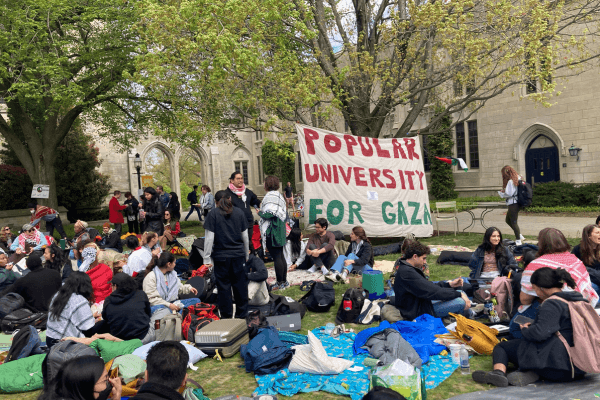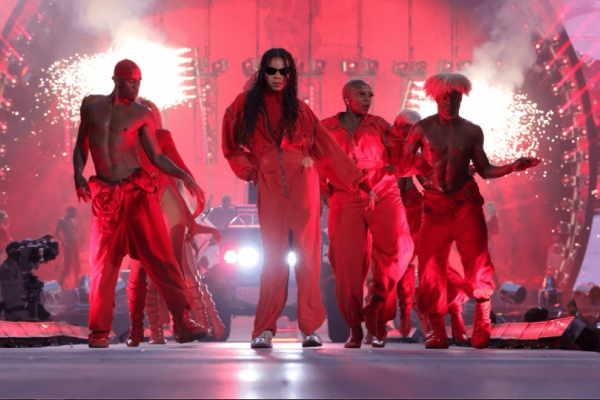Donald Trump has declared himself a "wartime president" as his administration responds to the COVID-19 pandemic. But wartime metaphors are missing the point. They are showing the deeply limited moral imagination of the nation, when the only vocabulary we can use to articulate a sense of shared responsibility is rooted in military action.
Wartime metaphors aren’t about unity or shared purpose; they’re about dehumanization. War is about killing other human beings and convincing nations that their deaths are justified.
If we are going to use that language in a global pandemic, it will come with already built-in assumptions that death is not only inescapable but sacrificial, honorable, dutiful – not a public health policy choice. A wartime president, using wartime language, will ask Americans to die. The avoidance of death would be a dereliction of duty and values.
Dan Patrick, the lieutenant governor of Texas, former conservative talk show host, and outspoken Christian dominionist, has made it clear that Americans will volunteer for this service and will not need to be drafted. Patrick told Fox News that he believes grandparents across the country would be willing to die.
“As a senior citizen, are you willing to take a chance on your survival in exchange for keeping the America that America loves for its children and grandchildren? And if that is the exchange, I'm all in,” Patrick told Tucker Carlson.
The wartime metaphor that asked Americans to sacrifice themselves to keep “the America that American loves” obscured what Patrick meant. He was saying that people across the country, and especially older people, should be willing to die for an economic system that has allowed a small percentage of people in the country to amass a disproportionate amount of wealth while nearly half of all families do not have $500 in savings.
Wartime language also builds upon already established ideas that dehumanize communities of color and poorer countries around the world. The Trump administration has shown it has no qualms with the vocabulary of dehumanization. It is well versed it in. Trump has called Mexicans criminals and rapists. The administration has portrayed the entirety of the Muslim community as a terror group that requires a travel ban. Non-European nations are s**t-hole countries.
If wartime metaphors are applied to this pandemic, racialized notions of “American” will become resurgent. Suspicion and surveillance of communities of color will become acts of national defense. The insistence of Trump and many in his administration to call COVID-19 the “Chinese Flu,” has already led to a burst of anti-Asian violence. Trump has weaponized dehumanizing language. Operating under the guise of a wartime president will only give him broader latitude to operationalize it.
Why then would we be so eager to adopt wartime metaphors?
Our flawed idea about how war forges unity is rooted in the deeply flawed historical memory of World War II that has less to do with the actual history and more to do with post-war John Wayne movies and more recent Clint Eastwood films. Those movies rewrote the morality of the actual epoch. They replaced suffering and death with a rugged individualism defined by masculinity. Bravery was easy to imagine when the bullets always missed. These movies showed squared-jaw GIs fearlessly liberating Paris, as bands of brothers, but never showed them beating Mexican-American zoot-suiters in Los Angeles in 1943 or rounding up and interning Japanese-Americans.
In our imaginations, everybody did their part on the home front and in the factories Rosies riveted. Rarely do we think about the hundreds of hate strikes that white workers undertook to protest the hiring, promotion, and paying of African-American workers in defense factories.
Most believe war forges unity because of popular but inaccurate books like Tom Brokaw’s The Greatest Generation that have built upon the hagiographic tradition of extolling primarily white Americans who fought and served during World War II.
We also believe that war forges unity, because for over a century the death that war brings has only mostly occurred abroad in faraway places that most Americans couldn’t find on a map.
There are limitations to understanding diseases through metaphors, as Susan Sontag explained. For illnesses, metaphors often placed blame on the ill; they led sick lives and thus they were sickened. Metaphoric language can obscure sources and causes. It can anthropomorphize contagions even while dehumanizing people.
This is a virus that does not recognize race or nationality. It has ignored borders. It has ignored class. It has ignored religious differences. It has ignored all the social constructs we have built to disregard one another in the service of an economy that exploits us. The pandemic has succeeded because it does not recognize all the things we have created to differentiate ourselves. To continue to believe that we are at “war” with somebody or something does little to address that we are now more than ever bound to one another and share responsibilities and obligations to one another.
Got something to say about what you're reading? We value your feedback!







